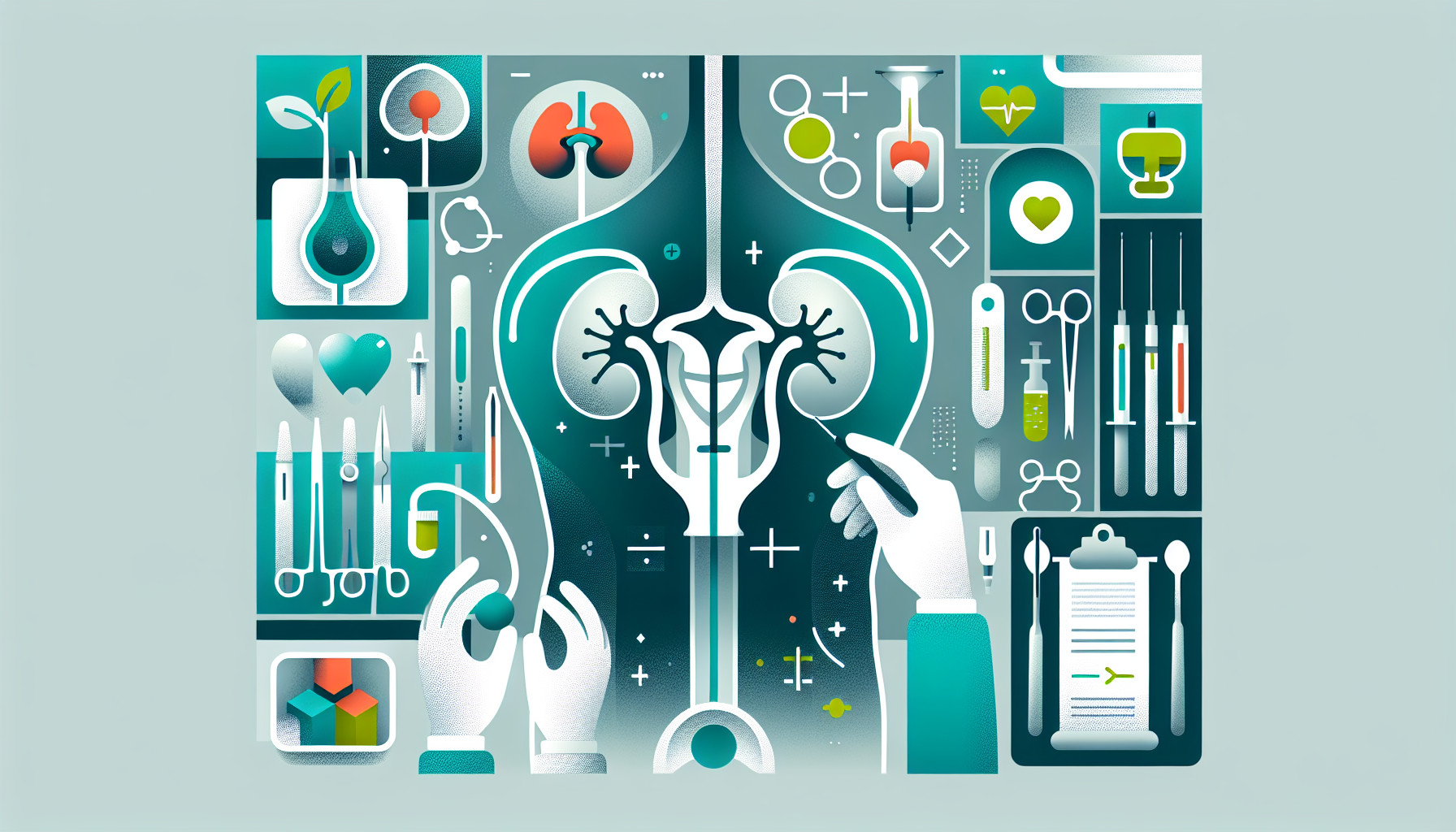Our Summary
This study looked at the feelings of shame felt by patients who have undergone a specific type of surgery - ureterostomy after cystectomy. This procedure is often necessary when the bladder is removed due to disease, and involves creating a new way for the body to remove urine, often resulting in a visible stoma (opening) on the body.
The researchers surveyed 164 patients who had this procedure, asking them about their feelings of shame and looked at different factors that might impact this, like their age, where they live, their income, their ability to care for themselves, and any complications they had with their stoma.
They found that the patients had a high level of shame, and that all of these factors significantly affected the level of shame they felt. In fact, these factors explained about 64.5% of the variation in patients’ feelings of shame.
The researchers suggest that healthcare providers should consider these factors and try to intervene early on to help reduce these feelings of shame in patients after this type of surgery. The aim is to improve the mental health and quality of life of these patients.
FAQs
- What is a ureterostomy and why is it performed?
- What factors were found to impact the level of shame felt by patients who underwent a ureterostomy?
- What do the researchers suggest healthcare providers do to help reduce feelings of shame in patients after a ureterostomy?
Doctor’s Tip
One helpful tip a doctor might tell a patient about ureterostomy is to seek support from a mental health professional or support group. It is important to address any feelings of shame or emotional distress that may arise after undergoing this procedure. Talking to others who have gone through a similar experience can be comforting and provide valuable insight and coping strategies. Additionally, practicing self-care and being kind to oneself during the recovery process can also help improve overall well-being.
Suitable For
Typically, patients who are recommended ureterostomy are those who have undergone a cystectomy (removal of the bladder) due to conditions such as bladder cancer, interstitial cystitis, or other bladder diseases that cannot be treated by other means. Ureterostomy may also be recommended for patients who have had complications from a previous bladder surgery or other medical conditions that affect the urinary system.
Timeline
Before ureterostomy:
- Diagnosis of bladder disease that requires bladder removal.
- Consultation with healthcare providers to discuss treatment options.
- Decision to undergo ureterostomy surgery.
- Pre-operative preparation and education about the procedure.
After ureterostomy:
- Surgery to create a stoma for urine drainage.
- Recovery period in the hospital.
- Learning how to care for the stoma and manage any complications.
- Adjustment to life with a visible stoma and changes in urinary function.
- Follow-up appointments with healthcare providers for monitoring and support.
- Possible feelings of shame and emotional distress related to the stoma and changes in body image.
- Counseling or support groups to help cope with these feelings.
- Long-term management of the stoma and ongoing care for overall health and well-being.
What to Ask Your Doctor
Some questions a patient should ask their doctor about ureterostomy may include:
- What is the reason for needing a ureterostomy after cystectomy?
- What are the potential risks and complications associated with the procedure?
- How will the ureterostomy affect my daily life, including activities, diet, and hygiene?
- What is the expected recovery time and follow-up care after the surgery?
- Will I need to make any lifestyle changes or adjustments to manage the stoma?
- Are there any support resources or counseling services available to help cope with the emotional impact of having a ureterostomy?
- How often will I need to see my healthcare provider for monitoring and maintenance of the stoma?
- Are there any specific dietary restrictions or recommendations to follow after the surgery?
- What can I do to prevent complications or infections related to the ureterostomy?
- Are there any alternative treatments or options to consider for managing my condition without a ureterostomy?
Reference
Authors: Li Q, Zhuo L, Zhang T. Journal: Int Wound J. 2024 Mar;21(3):e14793. doi: 10.1111/iwj.14793. PMID: 38453161
